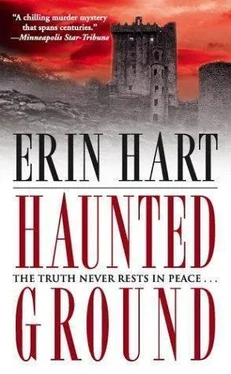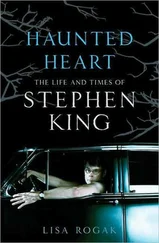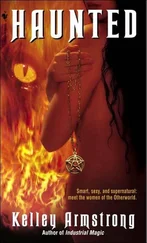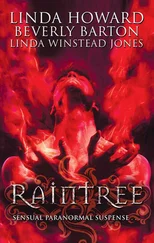“Cormac Maguire, this is my brother, Fintan, and this,” Una said, as the child scurried around to her side, “is my daughter, Aoife.”
Conversation at the McGanns’ supper table reminded Cormac of the few times he’d gone home for a weekend with a classmate from school. At home there was only himself and his mother, and they never wanted for conversation, but in the circle of a larger family than his own, there was a kind of uncontrolled energy he found irresistible. The subject matter around this kitchen table was nothing lofty, and yet Cormac watched with fascination as words and laughter leapt and slid across the table. There was only one party noticeably silent: Brendan had barely acknowledged Cormac’s presence when he came in, and after answering a few questions, sat apart from the rest of them at the end of the long table. He chewed noisily, mopping the meaty juice of the stew with rough pieces torn from a heel of brown bread, and spoke not a word to anyone. Soon he pushed away from the table and retreated to the chair beside the fireplace, grinding tobacco between his rough palms and filling his pipe in a way that suggested years of habit. Indeed, everyone behaved as if this were a perfectly normal occurrence, and perhaps it was.
No one had mentioned Aoife’s father. Perhaps he was absent, as Cormac’s own father had been. After the meal, the little girl set out the spoils she’d collected—a broad white toadstool, acorns and chestnuts, soft patches of pale green moss, and, finally, a small sprig of white hawthorn flowers. Brendan’s face darkened.
“Aoife, take those outside. Right now—do you hear me? It’s bad luck bringing them into a house. And you,” he said, jabbing a finger at Fintan, “ought to know better.”
“Ah, Brendan, they’re lovely,” Aoife protested, as she playfully thrust the pale flowers into his face. He recoiled and stood, towering awkwardly over the little girl.
“Why must you always argue? Jaysus, you’re just like Una,” he said, the pitch of his voice rising. “Can you not just do as you’re told?” He wrenched the flowers from the child’s grasp and marched to the back door to fling them out into the darkness. Cormac remembered his grandmother’s horror when he’d brought a similar bouquet home as a small boy. His mother had tried to explain that it was just superstition. It was only years later he’d read that hawthorn was considered unlucky because its sweet, stale fragrance suggested the smell of death. What would a child know of that?
“Maybe I’d better be getting back,” Cormac said, remembering the music session in Dunbeg. He turned to Fintan. “I can give you a lift in, if you like.”
The pub was already fairly crowded when they arrived, and a handful of musicians had gathered just inside the door near the stone fireplace. A half dozen pints of porter, creamy tops measuring their levels, stood waiting on the short tables at the center of the group, while the air above their heads coursed with the swirling rhythm of a reel that Cormac recognized immediately as a splendid setting of “Rakish Paddy.” As Fintan stepped to the bar to order drinks, one of the fiddle players turned to look at them—it was Garrett Devaney. The policeman raised his eyebrows by way of greeting, all the while keeping his bow in motion and his chin lovingly pressed to the body of his fiddle.
When Fintan handed him his pint, Cormac sat down and began putting together his ebony flute, carefully wedging together the silver-rimmed seals of waxed string, lining up the finger holes, testing the sound and the feel of it against his lower lip. As he did so, he watched Fintan’s elaborate process of assembling and strapping on his uilleann pipes, one narrow leather belt buckled around his waist, the other around his right arm to work the small bellows. It had always seemed to Cormac a ritual akin to strapping on the phylacteries of some ancient religion.
As the pulsating rhythm of the tune ended, an old man with a bald head burst out laughing as he set down his flute and reached for his full pint. “Be the holy, that was a good one,” he said to the fellow beside him. “A real scorcher.” Fintan quickly introduced Cormac around the circle. The stocky man beside the chortling flute player sat leaning forward, listening intently. At first Cormac wondered what set this man apart from the others. No instrument, for a start, but as the fellow reached out and touched the table for his drink, Cormac realized that he was blind, though he moved like a person who hadn’t always been so.
“That’s Ned Raftery, my old schoolteacher,” said Fintan. “Great fuckin’ singer.”
Devaney broke in beside them with a sideways glance. “Glad you could join us.”
Cormac didn’t quite know what to make of the policeman. The wry look didn’t disguise the fact that Devaney’s eyes were everywhere, even here, among his friends and neighbors, sizing things up, cannily recording and filing everything away.
The pub door swung open, and Hugh Osborne entered. Conversation suspended for the briefest instant as his presence registered around the bar, then resumed at normal volume, but Osborne seemed completely unaware of the momentary stir he caused. As he surveyed the room, his gaze alighted on Cormac, hesitating slightly, as though he only half recognized the face. He moved to the bar, where he ordered a drink and stood alongside a young man whose dark, cropped head seemed barely suspended between the peaks of his shoulders. Osborne spoke a few words to the boy, who jerked his arm away awkwardly, though Cormac would almost swear he hadn’t been touched.
In contrast to the work clothes he’d been wearing at the site this afternoon, Osborne was dressed expensively, even elegantly now, in a black silk jacket and camel-colored slacks. But it wasn’t just the clothing; the man had a natural physical grace that was all the more noticeable because of his height. Fintan followed Cormac’s gaze.
“You get the story on him?” he asked confidentially. Cormac nodded, and Fintan continued: “I don’t know if he’s as guilty as everybody around here likes to make out. A lot of ’em are just fuckin’ delighted seeing the big man down in the mud. I think that’s a load of bollocks. But I wish Una would wise up all the same.”
“Maybe they’re just friends,” Cormac said.
Fintan looked at him. “Right,” he said, “maybe they are.”
A while later, on his way back from the gents’, Cormac passed by the end of the bar, near the young man to whom Osborne had spoken. The crowd hushed as one of the fiddles began to play “The Dear Irish Boy,” an old air whose haunting melody never failed to raise the hairs on the back of Cormac’s neck. He stopped for a moment to listen, feeling his chest and throat tighten at the desolation in the pleading notes. The boy at his side drew back and stared hollowly at Cormac for a long moment, then turned unsteadily, lifted a glass to his lips, and drank greedily, as if by draining the glass he could dive headfirst into oblivion. And so he could, Cormac thought. The young man rapped his glass once on the bar and Cormac heard the publican whisper furiously: “You’ve had enough, now. Clear off.” There was no response but another rap of the glass. “Go home, will yeh? Before you get us both in a rake of trouble.” The boy peered blackly at the barman, then lurched away and stumbled in slow motion through the crowd and out into the night. Hugh Osborne followed the boy, ducking his head as he pushed his way out the door. Cormac saw that he wasn’t the only one watching: Devaney was taking it all in as well.
It was morning. Cormac could hear the pub coming to life downstairs, the unloading of aluminum casks of beer, the clink and rattle of bottles in wooden crates, the puttering diesel roar of a lorry as it pulled away to the next delivery. He’d slept wretchedly, his rest disturbed by fearful, brackish dreams of being pursued by a shadowy assailant through a dark wood.
Читать дальше











